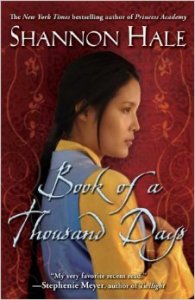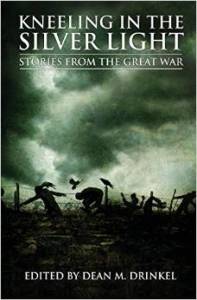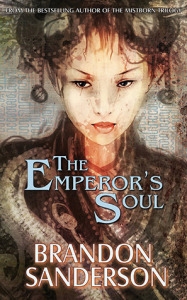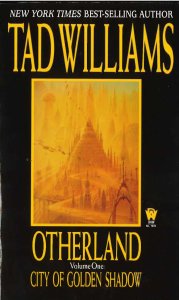 Which plot sounds better? A maid stuck in a tower serving a princess for a thousand days, or a girl trying to escape a society where everyone is tattooed with barcodes and discriminated against if they don’t have them? Usually, I would say the second, but I read these books close to one another and the importance of well-formed prose became starkly apparent. I have to point out a bias here, Shannon Hale was an author I already liked, but after “Book of a Thousand Days,” she moved into the role as my absolute favorite writer. Why? Because she could take a plot so seemingly boring as a girl stuck in a tower and pull me in from page one. Reading her prose is like a serenade. When a story’s great theme has lousy prose, it’s like stepping into a brand-new truck, going down a bumpy road, and realizing the shocks are out.
Which plot sounds better? A maid stuck in a tower serving a princess for a thousand days, or a girl trying to escape a society where everyone is tattooed with barcodes and discriminated against if they don’t have them? Usually, I would say the second, but I read these books close to one another and the importance of well-formed prose became starkly apparent. I have to point out a bias here, Shannon Hale was an author I already liked, but after “Book of a Thousand Days,” she moved into the role as my absolute favorite writer. Why? Because she could take a plot so seemingly boring as a girl stuck in a tower and pull me in from page one. Reading her prose is like a serenade. When a story’s great theme has lousy prose, it’s like stepping into a brand-new truck, going down a bumpy road, and realizing the shocks are out.
Here are the first few paragraphs from “Book of a Thousand Days”:
My lady and I are being shut up in a tower for seven years.
Lady Saren is sitting on the floor, staring at the wall, and hasn’t moved even to scratch for an hour or more. Poor thing. It’s a shame I don’t have fresh yak dung or anything strong-smelling to scare the misery out of her.
The men are bricking up the door, and I hear them muttering and scraping cement. Only a small square of unbricked sky and light still gape at me. I smile back at its mean grin to show I’m not scared. Isn’t it something, all the trouble they’re going to for us? I feel like a jewel in a treasure box, though my lady is the—
Notice the variation of shorter and longer sentences, the simplicity of language, and the inflections in the words that allows the prose to become like a melody when read aloud.
Both books are written in the first-person. However, at the end of Thousand Days, I felt like I knew the main character, Dashti. In the other, the protagonist was still an enigma whom I didn’t understand and whom seemed inconsistent. I think this happens, in part, from a focus on story over character. An indication that Hale knows her character well from the very beginning is shown by her word-choice:
“…hasn’t moved to scratch…,” “It’s a shame I don’t have fresh yak dung or anything strong-smelling to scare the misery out of her.” “I smile back at its mean grin to show I’m not scared.” and “Isn’t it something, all the trouble they’re going to for us?”
These statements tell us about Dashti’s background, her fortitude, her humility, and her simplicity. Of course, this is because we’re seeing the world from Dashti’s view, but the author shows us this view by word choice. Yak dung? Those two words tell us a lot about the story’s location and about Dashti’s place in it.
Don’t get me wrong, story matters and being a good storyteller with proper pacing and resolutions is key, but before you jump to tell the story, think about how much you can tell us by each word, each sentence, and the beauty you strive for in bringing them together. Author Dan Wells has suggested to writers on multiple occasions that we take the time to read and learn poetry. This is why; when we learn to string the right words together, in the right order, our stories rise in dimension and readers find themselves as transfixed by the prose as the story.



 As a reader, I have a lot of reverence for the cliffhanger. I think I am perhaps in the minority here. I can certainly remember a time when cliffhangers drove me crazy. Back when I was in junior high, I would anxiously (not boldly) go into the various Star Trek season finales, knowing they wouldn’t end well for my heroes and I’d likely suffer months of torment afterward waiting for the inevitable resolution come fall.
As a reader, I have a lot of reverence for the cliffhanger. I think I am perhaps in the minority here. I can certainly remember a time when cliffhangers drove me crazy. Back when I was in junior high, I would anxiously (not boldly) go into the various Star Trek season finales, knowing they wouldn’t end well for my heroes and I’d likely suffer months of torment afterward waiting for the inevitable resolution come fall.